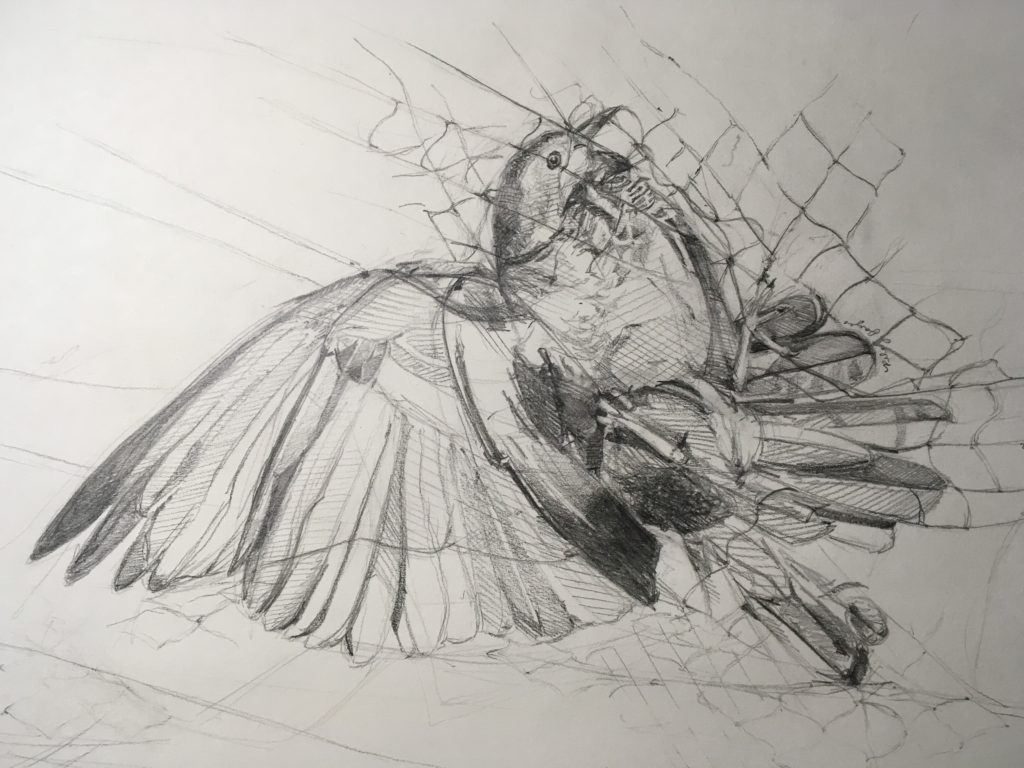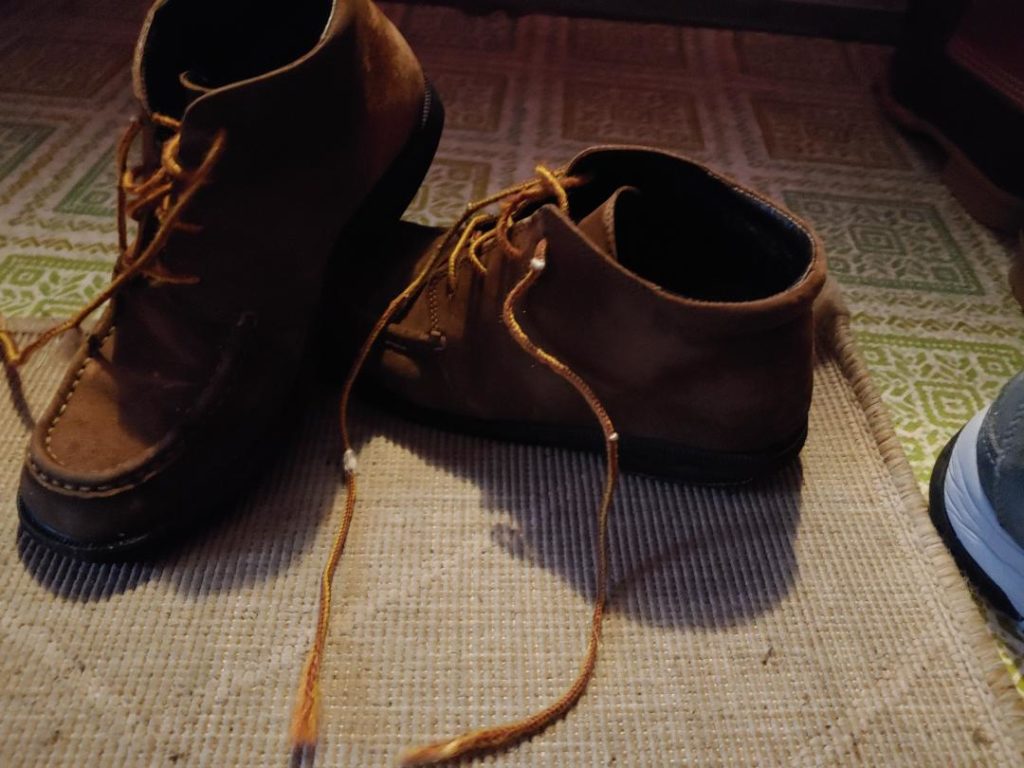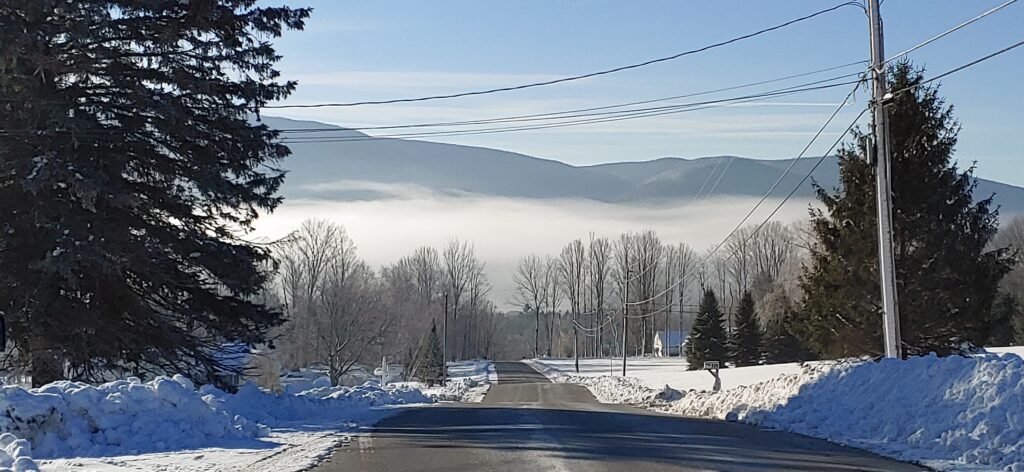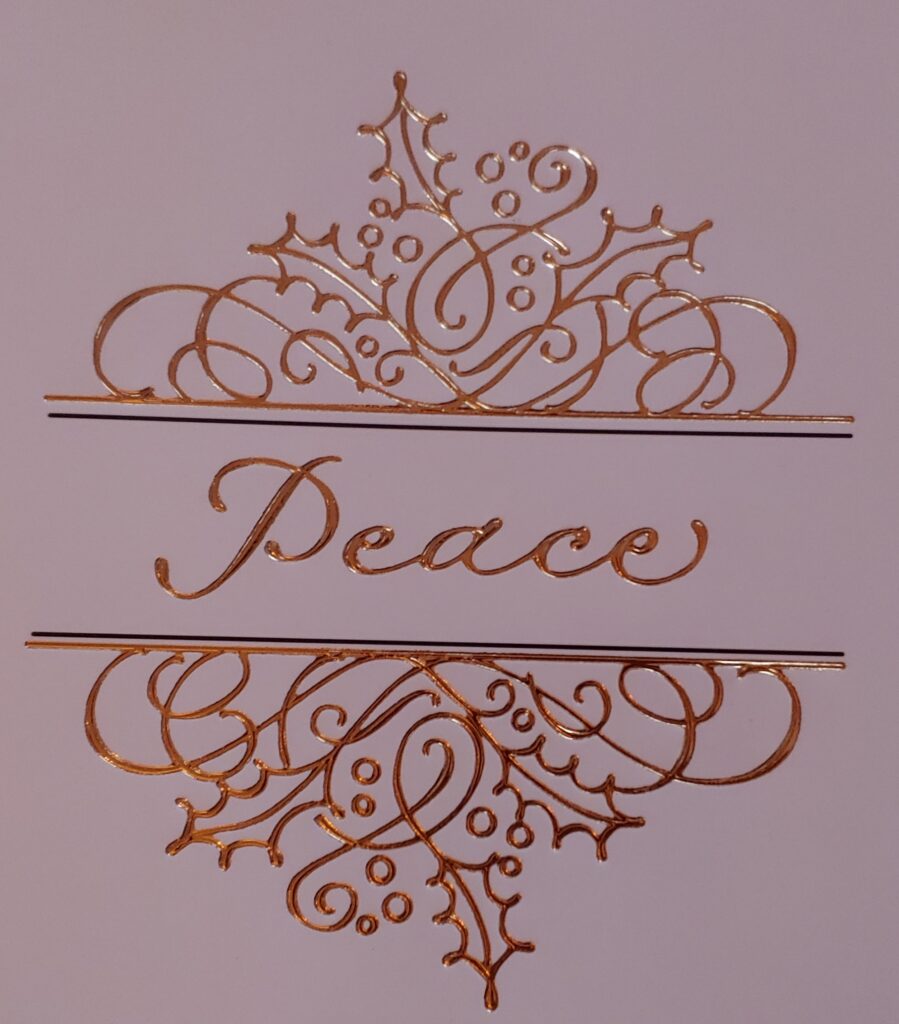
Psalm 124, by Riley Anderson
If it had not been for the Lord who was on our side – let Israel now say –
If it had not been the Lord who was on our side, when our enemies attacked us,
then they would have swallowed us up alive, when their anger was kindled against us;
then the flood would have swept us away, the torrent would have gone over us;
then over us would have gone the raging waters.
Blessed be the Lord, who has not given us as prey to their teeth.
We have escaped like a bird from the snare of the fowlers; the snare is broken, and we have escaped.
Our help is in the name of the Lord, who made heaven and earth.
[Psalm 124, a Song of Ascents of David]
Years ago, when I had pulled a window in for cleaning, a bird got caught inside. The poor thing flew against the ceiling, bumped into walls, then tried over and over to escape through the glass of the closed windows. I opened all six windows as far as they would open, then threw open the back door as well. It took a few minutes, but the bird finally flew outside and disappeared.
Had the bird not panicked, she could have gone out the way she got in. But claustrophobic fear made her blind to that quick and easy exit. It took opening many escape routes for her to get back outside, back to safety.
Feeling trapped is an awful thing, and struggling to break free sometimes just makes it worse. Sometimes, even if there’s a way out, it’s impossible to see or take. That’s when the only way out is through someone else’s compassion and kind effort.
Thank God for others who are willing to offer us release.





